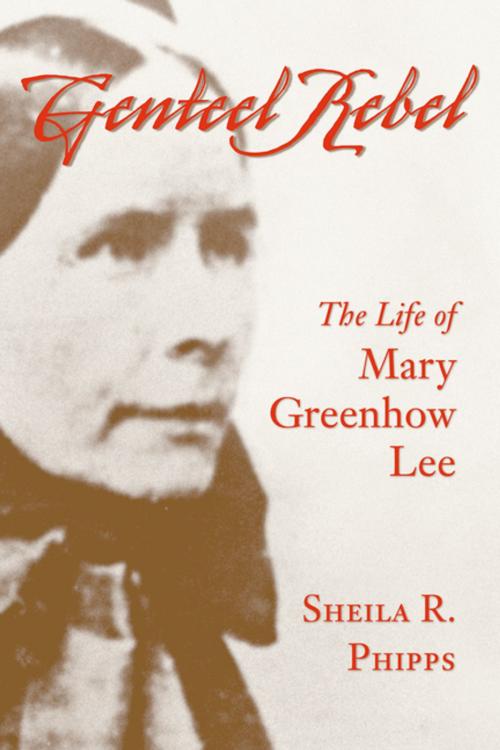Genteel Rebel
The Life of Mary Greenhow Lee
Nonfiction, History, Americas, United States, Civil War Period (1850-1877)| Author: | Sheila R. Phipps | ISBN: | 9780807165386 |
| Publisher: | LSU Press | Publication: | October 13, 2003 |
| Imprint: | LSU Press | Language: | English |
| Author: | Sheila R. Phipps |
| ISBN: | 9780807165386 |
| Publisher: | LSU Press |
| Publication: | October 13, 2003 |
| Imprint: | LSU Press |
| Language: | English |
This elegantly written biography depicts the combined effect of social structure, character, and national crisis on a woman’s life. Mary Greenhow Lee (1819–1907) was raised in a privileged Virginia household. As a young woman, she flirted with President Van Buren’s son, drank tea with Dolley Madison, and frolicked in bedsheets through the streets of Washington with her sister-in-law, future Confederate spy Rose O’Neal Greenhow. Later in life, Lee debated with senators, fed foreign emissaries and correspondents, scolded generals, and nursed soldiers. As a Confederate sympathizer in the hotly contested small border town of Winchester, Virginia, she ran an underground postal service, hid contraband under her nieces’ dresses, abetted the Rebel cause, and was finally banished.
Lee’s personal history is an intriguing story. It is also an account of the complex social relations that characterized nineteenth-century life. She was an elite southern woman who knew the rules but who also flouted and other times flaunted the prevailing gender arrangements. Her views on status suggest that the immeasurable markers of prestige were much more important than wealth in her social stratum. She had strong ideas about who was (or was not) her “equal,” yet she married a man of quite modest means. Lee’s biography also enlarges our view of Confederate patriotism, revealing a war within a war and divisions arising as much from politics and geography as from issues of slavery and class.
Mary Greenhow Lee was a woman of her time and place — one whose youthful rebellion against her society’s standards yielded to her desire to preserve that society’s way of life. Genteel Rebel illustrates the value of biography as history as it narrates the eventful life of a surprisingly powerful southern lady.
This elegantly written biography depicts the combined effect of social structure, character, and national crisis on a woman’s life. Mary Greenhow Lee (1819–1907) was raised in a privileged Virginia household. As a young woman, she flirted with President Van Buren’s son, drank tea with Dolley Madison, and frolicked in bedsheets through the streets of Washington with her sister-in-law, future Confederate spy Rose O’Neal Greenhow. Later in life, Lee debated with senators, fed foreign emissaries and correspondents, scolded generals, and nursed soldiers. As a Confederate sympathizer in the hotly contested small border town of Winchester, Virginia, she ran an underground postal service, hid contraband under her nieces’ dresses, abetted the Rebel cause, and was finally banished.
Lee’s personal history is an intriguing story. It is also an account of the complex social relations that characterized nineteenth-century life. She was an elite southern woman who knew the rules but who also flouted and other times flaunted the prevailing gender arrangements. Her views on status suggest that the immeasurable markers of prestige were much more important than wealth in her social stratum. She had strong ideas about who was (or was not) her “equal,” yet she married a man of quite modest means. Lee’s biography also enlarges our view of Confederate patriotism, revealing a war within a war and divisions arising as much from politics and geography as from issues of slavery and class.
Mary Greenhow Lee was a woman of her time and place — one whose youthful rebellion against her society’s standards yielded to her desire to preserve that society’s way of life. Genteel Rebel illustrates the value of biography as history as it narrates the eventful life of a surprisingly powerful southern lady.















